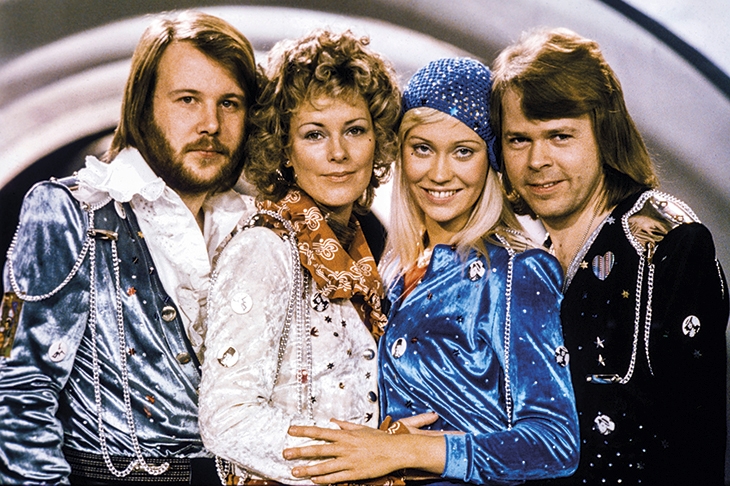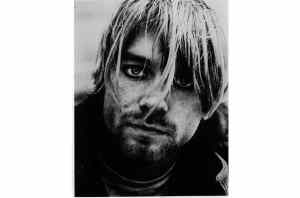You wouldn’t have thought that Starbucks’s pricing policy could influence rock history, but that’s what happened. In the early 1990s, when Mike Kroeger was working in one of its Canadian stores, a cup of coffee cost $1.95. So Kroeger spent all day handing customers their five cents change, saying: ‘Here’s your nickel back.’ When he later joined a band, and it needed a name, he simply combined the last two words into one.
Neil Tennant and Chris Lowe, on the other hand, had some friends who, because of their place of employment, were known as the ‘pet shop boys’. The band themselves don’t use the ‘the’, though of course everyone else does. See also ‘Eagles’, ‘Pixies’ and ‘Eurythmics’, the last named after an exercise regime used to introduce children (including a young Annie Lennox) to music.
ABBA use capitals not because the letters are the first of their four Christian names, but because there was a brand of canned fish called Abba. Lynyrd Skynyrd was a reference to Leonard Skinner, a teacher who’d told one of the band members to cut his hair. Similar rock’n’roll irreverence was shown by the Pogues (originally Póg mo Thóin, until there were complaints to the BBC — it’s Irish for ‘kiss my arse’) and Green Day, slang for a day spent smoking dope.
Many bands use cultural references. Duran Duran tweaked Dr Durand Durand, a character in the film Barbarella, ‘Frankie Goes Hollywood’ (without the ‘To’) was a newspaper headline in a pop art poster about Frank Sinatra taking up acting, while the Human League were characters in a sci-fi wargame. Literature has given us
Heaven 17 (a fictional band in A Clockwork Orange), the Doors (as in The Doors of Perception by Aldous Huxley), The Fall (by Albert Camus) and Level 42 — the answer to the meaning of life, the universe and everything in The Hitchhiker’s Guide to the Galaxy.
Some bands even owe their names to other bands. The Oasis leisure center in Swindon was a venue played by the Inspiral Carpets, for whom Noel Gallagher was a roadie. Bananarama took the Roxy Music song ‘Pyjamarama’ and combined it with the kids’ TV show The Banana Splits. The Lightning Seeds is a misheard lyric from Prince’s ‘Raspberry Beret’ (‘thunder drowns out what the lightning sees’), while Deacon Blue lopped the ‘s’ off ‘Deacon Blues’ by Steely Dan. Who, in turn, took their name from that of a steam-powered dildo in the William S. Burroughs novel The Naked Lunch. The Ramones were paying tribute to Paul McCartney, who used the pseudonym ‘Paul Ramon’ when checking into hotels. The Beatles themselves had been paying tribute to Buddy Holly, whose backing band was the Crickets.
Some of 10CC (though, memory being the fallible beast it is, not all of them) say their name referenced the volume of semen in a single ejaculation: the average male manages between two and five, so the band were emphasizing their power. A ‘megadeath’ (tweaked to ‘Megadeth’) is the name for a million fatalities caused by a nuclear bomb.
If all else fails, go random. The Bay City Rollers wanted an American-sounding name, so literally threw darts at a map of the country. But thankfully discretion didn’t desert them completely. Before they hit Bay City, Michigan, they rejected somewhere in the Deep South called Stinking Creek.
This article was originally published in The Spectator’s UK magazine. Subscribe to the US edition here.


















